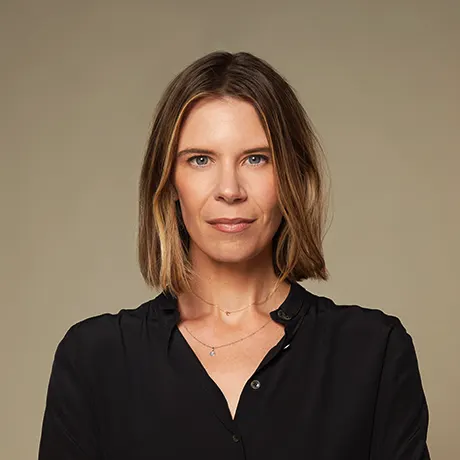Stay in the know
All our latest podcasts delivered right to your inbox.
John Hazelwood was diagnosed with ADHD shortly after he graduated from college. He was in therapy and had trouble with test anxiety. Music was the only thing that helped him study and actually remember what he read. Then he got curious about ADHD medication and talked about it with his doctor, who recommended an ADHD evaluation.
John, a mechanical engineer in Virginia, co-founded the Men’s ADHD Support Group, an organization aimed at helping men with ADHD find community and acceptance. John talks about facing stigma around ADHD and mental health in the Black community, what songs sound like ADHD, and much more.
Check out the Men’s ADHD Support Group.
Related resources
ADHD as a “white boy problem” (from The Opportunity Gap podcast)
What I tell Black parents who worry about labels like “ADHD” for their child
Episode transcript
John: Was going to therapy towards the end of college because I was struggling. I was struggling with, you know, just my mental health and how I process things. I'm like, you know what? I'm going to go to my primary care physician and let her know, like, "Hey, I'm having problems with focusing. I'm having problems with emotional regulation, staying interested." And she was like, "Well, let's do a neuropsych evaluation."
Laura: From the Understood Podcast Network, this is "ADHD Aha!," a podcast where people share the moment when it finally clicked that they or someone they know has ADHD. My name is Laura Key. I'm the editorial director here at Understood, and as someone who's had my own ADHD "aha" moment, I'll be your host.
Laura: I'm here today with John Hazelwood. John is a mechanical engineer based in Richmond, Virginia. He's also the co-founder of the Men's ADHD Support Group. Welcome, John.
John: It's a pleasure finally being able to do this with you. I'm absolutely ecstatic for this opportunity. Just, you know, to kind of spread the message from a different point of view, a different lens, and give everyone a different feel for how ADHD shows up amongst everyone.
Laura: I'm thankful that you're here. You were diagnosed when you were 21, is that right?
John: Yes. So, I'm 33 now. I was diagnosed at 21. It was shortly after I had graduated college. And when I learned everything about it, I'm just sitting here like, "Why didn't I have this information way ahead of time? Like, where was all of this when I was sitting here struggling?"
Laura: Yeah. So, what were you struggling with?
John: Oh, let's going ahead and talk about that one. Time management, you know, like time blindness, doing everything right at the last minute. Organization. I like to call, you know, my workspace, organized chaos sometimes, because it doesn't make sense to the normal person or the neurotypical mind. But when I see it, I'm like, "I know everything is." Repeating academic courses in college as well, and especially with engineering, some of these courses are really intensive with math. So, I took my calculus differential equations twice. Mechanical system design twice.
Laura: Do you remember a specific moment that you were like, "No, I'm going to go get evaluated."
John: Well, so, it was two things. It was going to therapy towards the end of college because I was struggling. I was struggling with, you know, just my mental health and how I process things. I used to think I had test-induced anxiety, where beforehand, I can sit down and recite any type of theorem or any concept I needed, but the second that that test comes up, the anxiety overwhelms me and everything goes out the door. So, I was never a really, really good test taker. So, that was one of them.
And then it was how, believe it or not, how people would be in a library is like, "Hey, I got some Adderall if you need it," and this and that. I'm like, "What is this stuff?" And then, you know, learning that it's just like for people with ADHD. Now, I didn't partake in that, but it's just how loosely it was around.
So, with those two things combined together, I'm like, you know what? I'm going to go to my primary care physician and let her know, like, "Hey, I'm having problems with focusing. I'm having problems with emotional regulation, staying interested. And, you know, I've heard of Adderall." She was like, "Well, instead of just putting you on this medication, let's do a neuropsych evaluation."
Laura: And first of all, I want to just say out loud that we don't want people, you know, sharing ADHD medication or using it recreationally or using it without a diagnosis. It can be very dangerous. So we should just say that flat out. But it's interesting that the prevalence of ADHD stimulant medication on near campus was really a tip-off, like, "Hey, I need support." Is that what the thought process was? Like "Wait, why do they get to have support? I need support." Is that kind of what was going through your mind?
John: Well, I was looking at it, so at the time I went to Virginia Commonwealth University, they were cracking down on a lot of that. I'm just sitting here like, "What are you all doing?" I'm like, "This does not sound right. It sounds like a transaction that should not be taking place." But it sparked my interest in understanding exactly what ADHD was because I was coming from a background where, you know, all you think it is, it's just you can't focus. You're a hyperactive child. You need to sit your butt down. You need to take this medication or else you can't function.
And then in our community, the Black community, you know, things like that were so negative. There are so many negative stigmas attached to it and connotations that was associated with it, where it almost felt scary to even reveal the state of your own mental health status. And when I finally got ahold of it, it changed everything for me.
Laura: What did that look like? Getting ahold of it.
John: It was an "aha" moment. It was like, "OK, why didn't I think of this before?” I remember like it was yesterday. So, I was studying for my finals. It's my senior year. I was taking calculus differential equations for the second time. And one thing I noticed was that anything that dealt with music and rhythm, I can remember things. So, I would literally pick certain music, low frequency, and I'll just play it over and over and over, and I'll be studying. And what I noticed is, is that after two hours of going over the same things over and over, if I tapped or I hummed the song to myself, I could literally remember exactly what I was looking at.
So, for me, it's like learning in a pattern. So let's say if I'm doing like all the flows transform, like we're looking at like an electrical nodal system and doing evaluation and I'm completely stuck. I'll literally hum the song in my head. It was a song about Wiz Khalifa at the time, it was called "Up." It's probably one of the most melodic songs that he did and it doesn't hardly have any words to it. And I would hum it, the page, the chapter, everything became vivid in my mind. And so, I was like "This is all clicking together. No wonder why I'm constantly around music all the time." Because it drowns out the internal noise that's in the inside of your mind. But it puts things together as well. It paints like a image that finally becomes clear to you when, you know, you don't have that stimulus nearby music and you're just sitting here like, yo, what the hell is going on? I'm like, OK, I'm looking at a Picasso painting, trying to organize it. So, it actually looks like an visible picture that everyone can see. But we're not all meant to see that way.
Laura: When you were younger, when you were a kid in grade school or middle school or even high school, do you remember struggling with ADHD symptoms at that point?
John: All the time. Well, the thing is, is that I went to predominantly white schools until, well, middle school, Providence was pretty integrated. But my elementary school, kids would tease you for being the slowest one in the class, or if he didn't understand this question that quick thing, you know something's wrong with you. You know, they throw out the R-word that, you know, we don't need to repeat, but we understand what it is.
It's like you're sitting there and it's like, "I want to say something about it." But when you grow up not really knowing how to use your voice and you're used to your voice being silenced versus heard, you then suppress what you want to express, and then that starts to build up. And I feel like there's trauma that gets added on top of that that instigates a lot of that. And I think it starts bringing out a lot of those tendencies.
Like it's hard for me to stay still. I had problems with getting bored very quick, so — and my mom, like she was always into our scholastic life. So she made sure that she stayed on top of us getting help for any type of mental health conditions that may come up. As a matter of fact, I learned from her within the recent years, she knew that basically we were suffering with it. But there wasn't too much that you can do about it. And it was one of those things where it didn't interrupt me so much in class as far as my performance, where, you know, we could have kind of just like swept it under the rug. And I was like, "Well, that's nice to know years later."
Laura: Oh, wow. Wait, wait, I'm sorry. Your mom knew that, and you said we, you and a sibling?
John: So, me and my middle brother struggled with it.
Laura: So, your mom knew that you had ADHD symptoms but did things on her own to support you and your brother? I don't want you to speak on behalf of your mom, but do you have any inklings as to why she didn't pursue official diagnosis any further?
John: I think it's just the readily available resources that was there and then putting extra pressure on your child — introducing something to them where your child already feels like their back is against the wall because, you know, going to a predominantly, you know, white elementary school, you had kids that would make fun of you. I remember a kid told me I wasn't Black because my dad lived with me. You know.
Laura: What? I'm really sorry to hear that.
John: I have a laundry list of just different, like, stereotypes. You know, if I was the last one to finish my test — and this went even into high school — it was, "Oh, well, why'd you take so long? We got this real quick. You must need extra time. If you need extra time, why don't you go in the hallway with the extra — you know, the other kids that were special." So, you know, you're trying to figure yourself out. You're trying to identify yourself, but you're starting to realize that your validation comes completely external and there's no sense of self.
Laura: And what you were just speaking to, the way that you were treated, and the way that people misperceived you, did that have any impact on your desire to or to not go for an ADHD evaluation?
John: Yeah, it definitely did. Because I remember just everyone's always having these jokes like, "Oh, you can never be on time" or "You don't remember anything. Why do you have to write everything down?" You know, "Why are you the last one to finish your exams?" Or "What, are you slow? Like, do you need, like, extracurricular help? Do we need to hold your hand?" And it'll be joking comments, and I was the type that I would laugh through my pain. You know, I was always joking, always making people laugh and smile. But I did that because I was really hurting in the inside.
Like Jason Wilson says in his book, it's mental incarceration. Like you're a prisoner to your own mind, not because there's something wrong with you. It's because you don't understand it. And so, therefore society's labels, their ideals, get projected onto you, where you just feel like, "You know what, I'm not supposed to exist here." And that's not fair because everybody deserves a shot. We just need to learn how to understand. We need to be more open and more receptive of that understanding.
And, you know, it got to the point where even after being diagnosed with ADHD and going into the workforce, I would get teased about the same things at my jobs working with the Navy and doing maintenance work. And some of the older engineers would have things to say, and I'd say, "You know what? Enough is enough." And I stopped taking my Adderall, because I hated what it did to me. And so I just went cold turkey and just had to fight and grind out until eventually I had enough of it. And that was years in the making. And it was because of the fact no one normalized that it was OK to go to therapy. No one normalized it's OK to get a neuropsych evaluation. No one, you know, normalized having neurodiversity. Because it was always seen as something that was beneath what society is. It's like you're an outcast.
And then like, you started learning about it. My idol Marc Almodovar, who's the co-founder of the Men's ADHD Support Group, we love Pharrell Williams. And he talks about seeing sound: synesthesia. Then Kanye West had just came out in 2007 and he would talk about he paints his beats. He would paint them out. Like I remember listening to it. I think it was doing "Do or Die" as Pay the Price. And you're in the studio watching him. If a high had hit, you saw yellow. If it was a deep 808, you saw like deep, like oranges, red, something that's powerful. If it was something that was melodic, you saw your blue. And it started clicking after a while. And I'm like, you know what? It's not that something's wrong with me. It's maybe that I have an artistic way of seeing things. I have a different way of navigating through the world that everyone's not going to get. But it can totally benefit me if I take time to learn how to work with it, not against it.
Laura: Is there a song that you feel like, I don't know, the beats or the rhythm or the words that best encapsulates what ADHD feels like to you?
John: Oh man, I got so many of them.
Laura: I want to know.
John: Like, for instance, like Timbaland. I love how his beats never stay the same. So like, he has a song with Joyner Lucas, "10 Bands." So you have different bass lines and the bridge is way different. Any time you listen to a Pharrell song, his bridges completely throw you out of nowhere. You just like, where did you come up with this? And then, you know, I know Kanye 's not like the biggest person in the media as far as what people like, but it was the "Late Registration" album. That album, every single song, when you break it apart, it is so many samples of so many things. Like "Addiction." Etta James, "My Funny Valentine." That's playing, it's being pulled.
And then I had this fascination with Amy Winehouse. Like I still listen her stuff till this day. "Frank" is the best album she ever came out with. And I remember she did stuff with Nas and I would watch like her BBC performances and I'm like, yo, she tries to be way different in what she does like on the album. And I love these different versions of it, and it just makes you super interested.
Laura: Are you a musician? The way you talk about music makes me feel like you're a musician.
John: So, what I did was during COVID, I had my brother's acoustic guitar. So I started, you know, YouTube University picking up a hobby and just teaching yourself.
Laura: That's a very ADHD thing to do.
John: Oh, master of so many different damn things, it's ridiculous. I remember as a kid that any time I heard music, I didn't always hear what everybody heard. Like for instance, Rex and Effects' "Rump Shaker." Everyone's listening to like the bass line to it, or you're looking at two girls in a video. I'm like, dude, that saxophone line is kind of sweet right now.
Laura: I never noticed it in that song. I'm going to listen for it.
John: That's the ultimate like one of the sample sets there, that saxophone.
Laura: Wait, no, I can hear it in my head right now. It goes do-do-do-oo, right? Or something like that.
John: And then you start in with Jay-Z "Show Me What You Got." That's the saxophone from there. Or like, what was it, Daryl Hall and somebody else? "I Can't Go for That." I would literally break down this stuff. Or Prince's Vanity 6 when they had Apollonia, "Nasty Girl." Like, I'm breaking down everything as a kid. And people are thinking I'm weird, but I'm like, "Maybe if the pitch goes up a little bit more here and he'd switch the key, that'd sound different." And I didn't start playing with it until COVID. Picked up an MPC beat machine and just started drumming and taught myself how to do that and met some really cool people with it.
Laura: You're just lighting up talking about music. It's really — it's really lovely to see. And I'm glad that you've had that strong bond with music your whole life, especially during more difficult times.
John: Yeah, I always look at it as in music is human expression. It's an art form. And so there are certain things that you can feel through like certain rhythms, certain pitches, or, you know, like your beats per minute. You can feel certain things like if I'm going to listen to Sia or Erykah Badu, how they harmonize and hit a high note. I'm hearing it to the point where a tear could come down my eye because I'm happy, because I flow with it. And you just get lost, and it's beautiful.
Laura: Can you unpack for me a little bit more the perception in the Black community? When you mentioned what you just mentioned, were you talking about mental health and perceived weaknesses and/or relying on medication?
John: So, just being human felt like it was more of a risk versus something that was rewarding. Saying that, you know, you're going through emotional struggles. You had the label of crazy. Or you had, you know what, you need to just pray about it. Or we don't need therapy. If you go to therapy, you're crazy. You see yourself as less than. A lot of the times — I remember one time I heard it's like, "Oh, you don't have ADHD. Your daddy just needs to be around." I've heard things like that. Or that house is hyper, they just need to sit their butt down and find something that's interesting to them. Any mental health diagnosis? There was never anything positive about it.
So when you look at it, you kind of shun people by default because you're conditioned to do that. Or you don't want to be associated with it. Like if you hear the word Ritalin and all, you're just like, oh, that's those kids that came out of class. They had to take their medication because if they don't, they're going to be, you know, out of whack.
But you start realizing like, you know what? It's even worse suppressing what you want to express. So one of the things that I started picking up on was the fact that no matter how much I wanted to be free in my mind, I was not going to be accepted by anybody in society. So it's better to wear a mask and just suffer in silence. And you don't want to be a casualty to your mind because it's like mental warfare. And the thing is, it's a war you can't see and people die from it every single day. And it shouldn't take a police brutality or someone acting out, harming others or harming themselves, just for people to want to sit down and say, hey, what's going on? Because the first thing people want to holler is, "What's wrong with you?" I'm not going to ask that question. I'm going to say "What happened? Talk to me about it." Because there needs to be more understanding. And when we get to that point, I think that's when we can be a little more comfortable having these conversations.
Laura: Something that we have spoken about a few times on this show is the fact that a lot of women with ADHD were never diagnosed as kids because it was perceived as, and I'm quoting here, a "white boy problem." So I'm interested to hear from you, as a Black man, your perception. What's your take on that phrase, the "white boy problem" of ADHD?
John: I think it was safe to label it that way because we didn't want to be associated with it because of the backlash that was from there. Because it's like, you know, being Black in America, especially in the school system, you already have your backs against the wall from the get-go. People don't even know you, but they already have something to judge about you based off of the history that's there. And then you're like, OK, well, let's get — let's get interested in it. Who's the face of it? And every time I saw it, it was a white male.
Laura: Yeah. And I was just listening to — we have another podcast in our network at Understood. It's called "The Opportunity Gap," and the host is really wonderful. His name is Julian Saavedra. He is a teacher and school administrator around Philadelphia. The idea of the show is that they talk a lot about kids of color who have ADHD and other learning differences and how kids will face a double stigma as a result of that. And they recently had a guest on Dr. Tumaini Coker, who's like a superstar in pediatrics. She's amazing and she has twin boys with ADHD. I hope I'm getting that right. They were asking the question, "Is ADHD overlooked in Black children, or is it overdiagnosed?" And she was sharing some data that I had never heard about before that really showed that it is not a problem of overdiagnosis in Black kids. It's being overlooked is really the problem and being kind of mislabeled as discipline issues and whatnot.
John: The biggest thing is just like what I was mentioning earlier. Like I remember when I got interested in learning more about my ADHD, like back in 2019, and I would look at resources. And a lot of the resources were not people that look like me. One of the only resources of someone that looked like me was René Brooks, who is like a big sister to me. "Black Girl, Lost Keys." And then you have Jessica McCabe, who I got to actually meet at the ADHD International Convention and share the panel with her. Those are the only two people that I had to learn anything about it. And then it made you start questioning, OK, so what is the diagnostic criteria? Where is like the science that's behind it? Like, what are they doing to evaluate, you know, children of color? And I think they should dig down a little deeper. Go into the actual Black societies, go into the Latino societies and test them.
Because I know for me, speaking from a Black standpoint, there's trauma that's embedded inside of me that's been passed down for generations and generations. And it all comes from when we were brought over here. And basically you have this old stereotype that Black people are pretty much immune to mental health because we owned no status in society. We didn't know what it was like to own any property or to be economically sound.
And when you take that and it gets conditioned into your mind for such a long time, no one wants to challenge it. There's more to lose challenging it versus to gain something from it that's actually going to help you. So a lot of people stay silent on it. And the biggest thing I want to see is people moving away from the focus factor because ADHD is not just focusing. It's so annoying when someone's like, "Oh, I think I have ADHD. I can't focus." I hate when people do that.
Laura: Is that feeling something that drove you to launch your podcast?
John: So the podcast. We started with Facebook and it's just a resource group. And then we started having like daily memes, little workshops within the actual group. And then we were like, you know what? We have a lot of things in common. And we kept talking on the phone a whole bunch and we're like, dude, let's just it turn into a podcast. And we're starting it back up now.
We actually have started recording some more episodes that we're going to get ready to drop. But we had taken a while off just because of bandwidth. But it's like we do it because these are the conversations that need to happen and we don't want to have a conversation that's overly like educational or something that's like overly serious where like you're throwing out all these medical terms and it's just like it feels like it's a weighted vest on you. We want something like, if I'm sitting on the couch, you're sitting on the couch, we have a drink or water, whatever you want to have, and we're just relaxing. We're just appreciating each other's existence. And that's how it's always been.
Laura: And you have a support group that you run, or is that the term that you use?
John: It's the Men's ADHD Support Group. We're the largest right now. Over 13,000 men who either are ADHD, are getting tested for it, or they're just neurodiverse and they just want a place to belong. And there's literally somebody for somebody there. It's so great. We have biweekly meetings, we have workshops now, we have Zoom meetups. We're now having in-person meetups that we're starting. The website has dropped and we're going to be doing a lot more content as well, too, that's more organized and structured. And then Marc and I are going to be the main ones doing the public speaking.
Laura: That's fantastic. What is the website? So we can make sure that it's included in this interview?
John: So before I butcher it, I'm going to pull out this card because I am going to be fully transparent to make sure I don't say the wrong thing.
Laura: That's OK.
John: It is www.MensADHDSupportGroup.org.
Laura: Did you hear that everybody? www.MensADHDSupportGroup.org. Nonprofit!
John: And if I pronounced it wrong or I gave you the wrong title, every person that is listening to this, feel free to DM me in uppercut, straight-to-the-chin streetfighter style.
Laura: Well, it's been really nice to talk with you today, John, and your journey is really interesting and I really appreciate your candor and what you're doing. It's a huge commitment, what you're doing in addition to your full time job. I just want to say thank you.
John: Well, thank you for this opportunity. Again, it is a pleasure. It's truly an honor just to be a part of a space where men can truly just be fully, authentically themselves, be honest and transparent, without any type of shame or feeling as if, you know we exist as less than. You're creating a safe space. And with that safe space that you're creating, you're also educating, empowering, and motivating people at the same exact time, too. And that's what we really need. We need a sense of unity versus just division that's out here. We need to see that it's OK to show up exactly as you are right now, because you can only get better. And anything that's come in front of you, you know, in your past, any hardship, any experience, as long as you take heed to the lesson and you're fully accountable and you're just present, the opportunities are endless. So thank you for creating spaces like this to exist.
Laura: That's so meaningful to hear you say that. I'm tearing up a little bit. So thank you so much.
You've been listening to "ADHD Aha!" from the Understood Podcast Network. If you want to share your own "aha" moment, email us at ADHDAha@understood.org. I'd love to hear from you. If you want to learn more about the topics we covered today, check out the show notes for this episode. We include more resources as well as links to anything we mentioned in the episode.
Understood as a nonprofit organization dedicated to helping people who learn and think differently discover their potential and thrive. We have no affiliation with pharmaceutical companies. Learn more at understood.org/mission.
"ADHD Aha!" is produced by Jessamine Molli. Say hi, Jessamine.
Jessamine: Hi, everyone.
Laura: Briana Berry is our production director. Our theme music was written by Justin D. Wright, who also mixes the show. For the Understood Podcast Network, Scott Cocchiere is our creative director, Seth Melnick is our executive producer, and I'm your host, Laura Key. Thanks so much for listening.
Host
Latest episodes
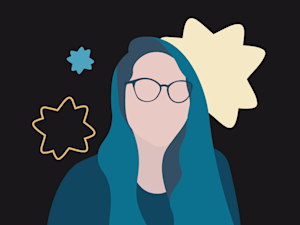
April 16, 2024
ADHD coach Jaye Lin was a gifted kid with undiagnosed ADHD. Now, she’s building communities and helping others cope with ADHD burnout.
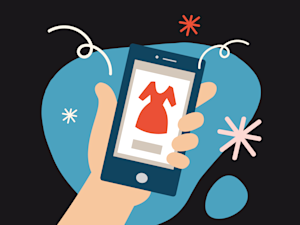
April 2, 2024
Writer Paulette Perhach had money coming in but struggled to keep it in her bank account. An ADHD diagnosis brought her struggles into perspective.
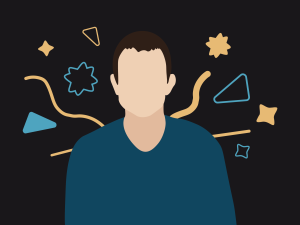
March 19, 2024
Eye to Eye founder David Flink is fighting the “just try harder” myth surrounding ADHD, dyslexia, and other learning and thinking differences.
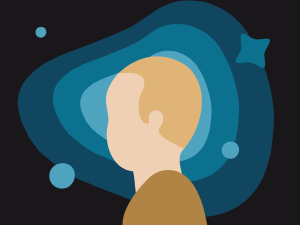
March 5, 2024
Peter Jones used to feel better saying he had a hearing problem rather than considering ADHD. Now, he knows he has ADHD and isn't afraid to say it.
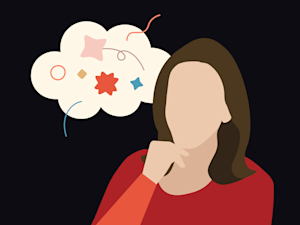
February 20, 2024
Before her ADHD diagnosis, ADHD coach Emily Weinberg thought she was just lazy. But in reality she was stuck in “analysis paralysis.”
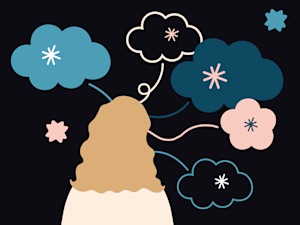
Carol Blumenstein was called an unteachable student. Now, she knows she has ADHD and dyslexia, and supports her five kids who learn differently, too.

January 23, 2024
Executive coach, actor, and former criminal defense attorney Ernest Anemone shares his ADHD story — and why he questions the term “attention deficit.”
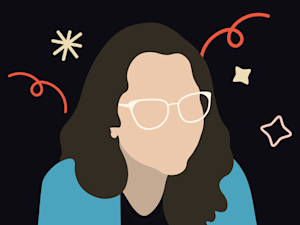
January 9, 2024
ADHD and post-traumatic stress disorder (PTSD) symptoms can look similar. And they can morph into what Hannah calls “a trauma ball of blame.”
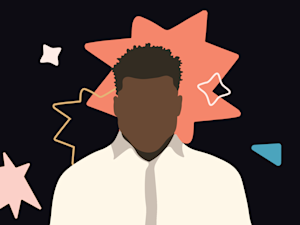
December 26, 2023
Livingston Steele was diagnosed with ADHD about a year into working at Understood.org. His experience and work have given him immense empathy for people with ADHD.
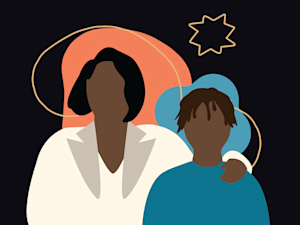
December 12, 2023
Wendy Zanders is a decluttering coach with ADHD. Find out how she got into organizing, and get a few tips for yourself.

